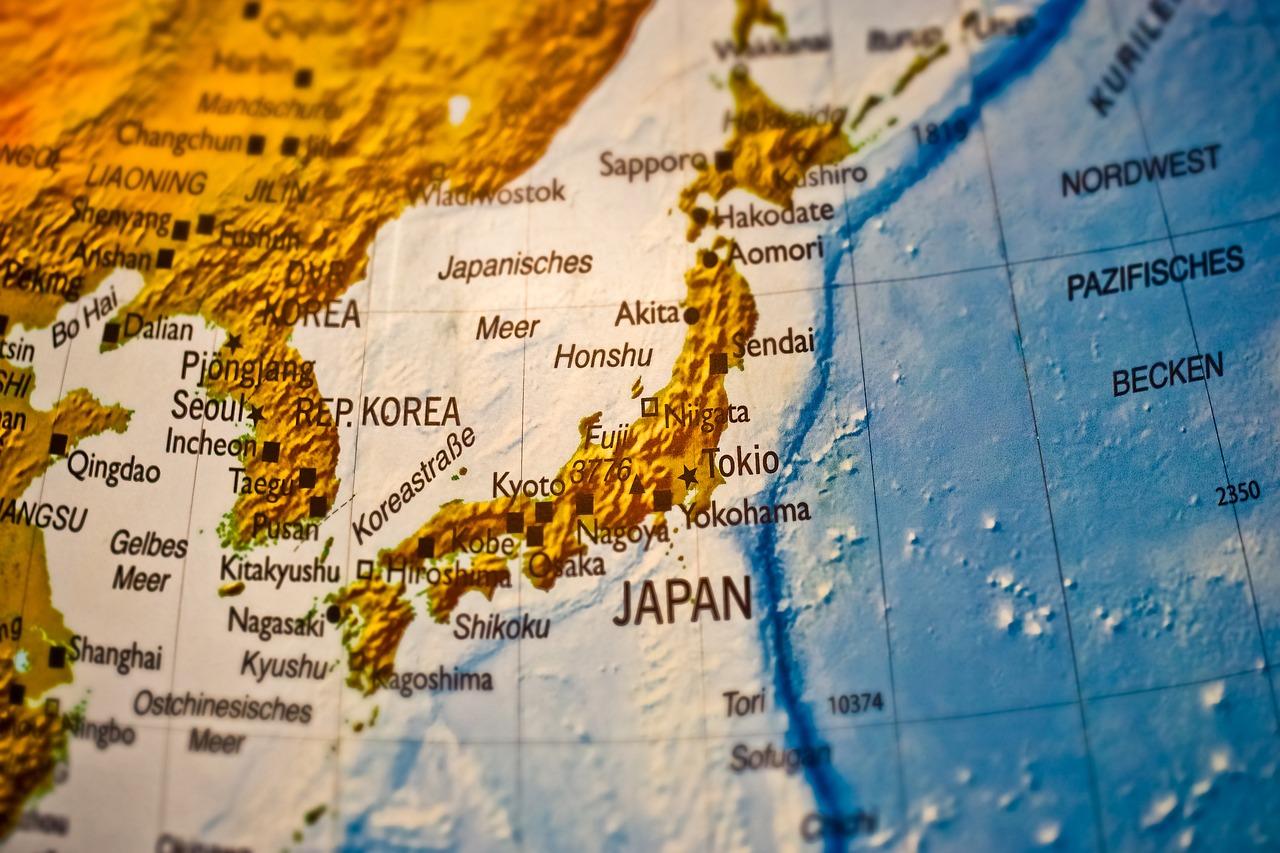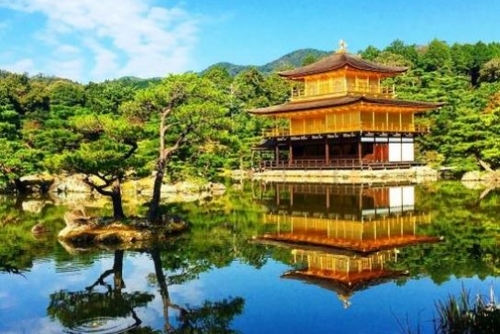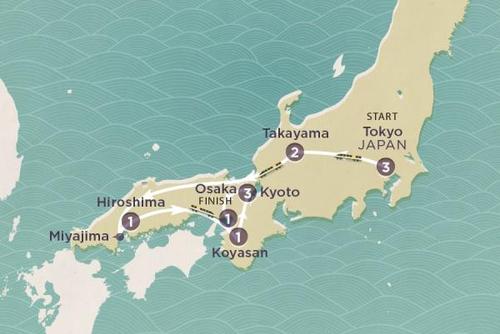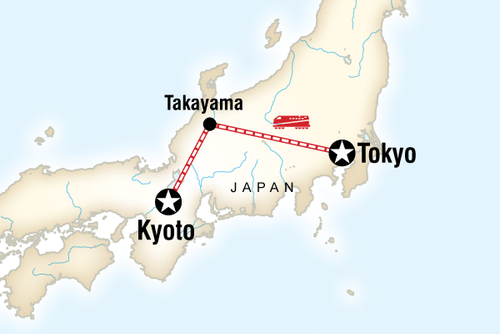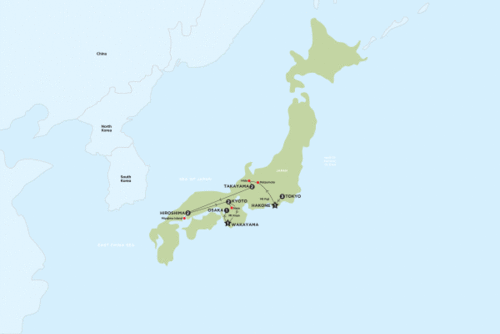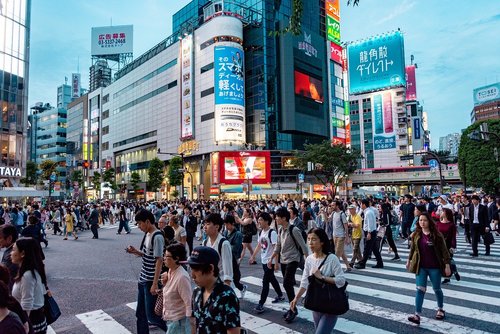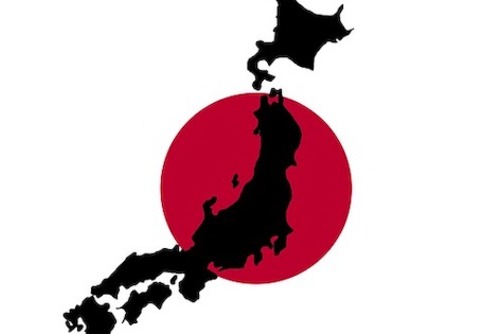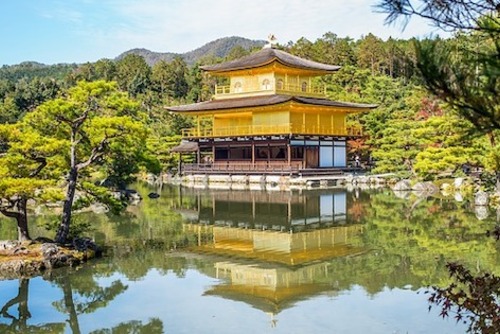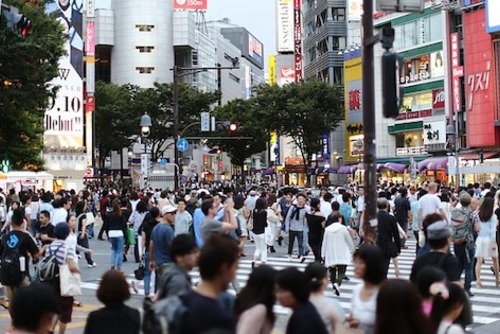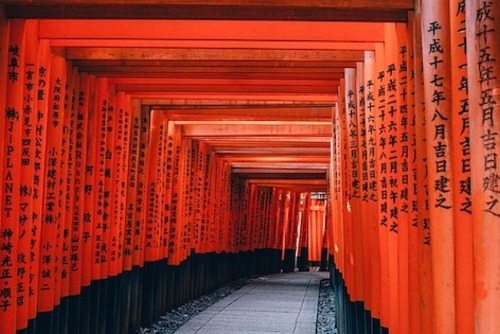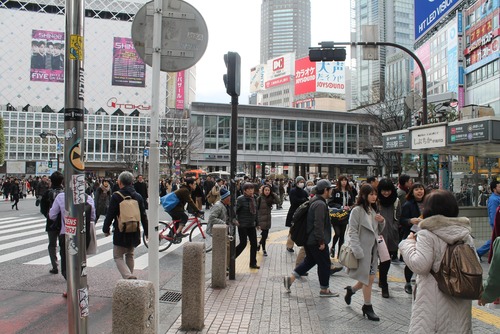Japan is an incredible destination with a rich culture and there are tons of activities and things to do while you’re there.
But the thought of travelling to Japan alone, whether male or female, can be daunting, especially if you don't speak Japanese. The language and culture are very different to the western world but this country is fascinating and you will be really rewarded if you travel here.
If you are keen to travel independently to Japan, check out our tips to stay safe and enjoy the best experience possible.
Why Travel Solo to Japan
- Very safe destination to travel
- Friendly people
- Unique culture
- Lots of fun things to do
- Tasty food
- Incredible cities
- Spectacular sights and nature
- Modern technology to make you feel you have been living in the dark ages
1. Getting to Japan
Japan is a long way from most countries but you can get some great deals throughout the year. We recommend using Skyscanner to find the cheapest flights to Japan. Skyscanner allows you to compare flights from different airlines and find the lowest prices. You can also use the search function to compare prices across a whole month to find the cheapest time to book.
2. Best Time to Visit
Most people prefer to visit Japan in late spring or late autumn. Why? Because there is little rainfall, it’s less humid and hot, and overall, the temperatures are milder. As an added benefit, the views are incredible during these two times of year - filled with cherry blossoms or autumn leaves, depending on which season you choose.
3. Research Destinations
Japan might not look huge on a map but there are so many places you could go. From large world famous cities like Tokyo to smaller lesser known off the beaten track towns. Essential places to see include Tokyo, Kyoto, Osaka and Mt Fuji just to name a few.
Try to make a short list and itinerary for the places you would like to visit, this will help to give your trip some structure. If you have around a month to spare, this is a great Japan itinerary.
4. Buy Travel Insurance
It is really important to buy travel insurance before travelling to Japan. Yes this can be seen as an unnecessary added expense but it is so vital to have and can save you a lot of money if you encounter any problems. If you get sick, injured or even get any belongings lost or stolen, travel insurance can protect you from a big financial hit.
5. Money / Budget
Japan is a pretty expensive destination especially compared to other destinations in Asia. Try to work out how much money you have, how long you want to travel for and also what you want to do. This will help you to put together a daily budget.
Although you can pay by card in most destinations, we recommend exchanging money in advance of arrival and aways keeping enough on you for daily use. If you need money there are ATM's at 7-11 shops and post offices.
How much you spend really depends on what you want to do, where you stay and how much of Japan you want to see. If you do all the touristy activities, stay at hotels and eat out at restaurants for lunch and dinner you will spend more than being a frugal traveller.
6. Find Things to Do
You could travel indepedently and organise the whole trip by yourself, or mix it up by doing tours, activities and classes. Travelling solo in Japan is great but sometimes it is good to do group activities so you can meet other people and enjoy different experiences. There are lots of options which can be booked in advance or on arrival.
7. Get Familiar with the Language
Japanese is a difficult language but even if you learn the most basic words and phrases it will make your trip even better.
A beginner knowledge of the language will go a long way in terms of making your trip a bit less stressful, especially when you’re traveling alone. English is taught in many schools throughout the country, but lots of local people do not speak any language other than Japanese.
You’ll want to be able to speak their language to some degree even if just the basics like hello, how are you, please and thank you.
If you don’t feel confident enough to speak to locals, try to speak slowly and clearly in your own language. This will help them have time to process what you’re saying and respond as needed.
Another option is to book a Japanese language course in Japan, this is a great way to improve your knowledge, meet other people and enjoy a cultural experience like no other.
8. Prepare for Arrival
Before you depart, make sure you have any relevant accommodation and proof of departure details with you. The chances are, on arrival you will have to declare how long you intend on staying, as well as one address and telephone number. They will likely want to see your proof of departure, such as a return ticket, to make sure you’re not planning on staying too long.
9. Accommodation
Hostels, capsule hotels and guesthouses are a great form of lodging for solo travelers. They’re widely available throughout the country, and more often than not, they’re quite affordable to stay in especially compared to hotels which can cost a lot.
Staying in a hostel or guesthouse is a great way to make friends while you’re traveling in Japan. If you haven’t stayed in a guesthouse before, you can expect to share a room wherein you rent a bed. You will also find lockers to store your luggage. As an added bonus, many places host various activities and events.
You will find accommodation in the main cities and tourist hotspots like Tokyo and Kyoto most expensive. If you’re looking for the best place to stay in Kyoto, make sure to book your guesthouse somewhere near downtown Kyoto or in the historical area of Gion for convenience. For Toyko, there is so much choice, shop around using Booking.com or HostelWorld for the best prices.
There are ways to keep costs down including booking in advance and staying somewhere outside of the main central/tourist area. In the past few years capsule hotels have sprung up all over the country which offer a unusual place to stay. You literally get a bed in a circual capsule, but although you don't get the space of a hotel room for example, prices are very low.
To get the best deals book in advance and use a comparison website like Booking.com.
10. Getting Around
Japan is very high-tech and there is free wifi in a lot of public areas. This makes getting around fairly easy as you can always consult your phone. In most touristy areas there are also signs in English which make the experience easier. For example, train station names are written in Japanese and English and when you travel on trains and the metro annoucements are made in English.
We recommend travelling by public transportation which is modern, quick, reliable and very safe. In the main cities there are good bus, metro and train systems. Taxis will be more expensive. Bullet trains connect the country which aren't super cheap but they make the whole experience of seeing Japan easier. This guide how to travel in Japan by train will help if this mode of transport appeals to you.
11. Eating Out
Going to eat at a restaurant alone can be a pretty lonely experience, but in Japan it really isn't that bad. There are lots of diners and restaurants, coffee shops and fast food restaurants throughout the country where you will see lots of single customers. Some have tables and booths for solo diners and you will find most staff very friendly and helpful.
A quick bonus tip: don’t tip when you’re dining out. Tipping at restaurants isn’t common practice in this country. In fact, it’s often considered offensive, so be aware and offer your sincerest “thanks” instead.
Throughout Japan you can also find vending machine food, which are great for budet travel in Japan and actually taste pretty good. You can also shop locally at supermarkets and grocery stores.
12. Be Aware of Taboos & Respect the Culture
Japan has quite a few well-known taboos you’ll want to be mindful of, especially if you’re traveling alone and don’t have anyone to remind you.
We’ll start with a few important taboos to keep in mind:
- Don’t talk on your smartphone while you’re riding any form of public transportation.
- Wear a cold mask if you have a cough or cold.
- Don’t use one finger to gesture at people.
- Never stick your chopsticks vertically into any food you’re eating.
- Remove your shoes whenever you’re expected to do so.
If you are a smoker you will see that Japan is taking drastic measures to help prevent smoking throughout the country. In some areas, you’re liable for a fine if you’re caught smoking outside of a designated smoking spot. If you’re a smoker, make sure you familiarize yourself with the designated smoking spots near you before light up.
In general, try to avoid any behavior that may be deemed “loud” or “distasteful” while you’re visiting. If you can, avoid drawing attention to yourself when it’s not necessary. If drinking alcohol, try to not go to excess.
Once you have been in Japan a few days you will soon learn some of the local cultural norms.
13. Meeting New People
Sure, you’re traveling alone, but that doesn’t mean you have to spend all of your time alone while you’re there! Japan is actually an incredibly easy place to make friends with friendly local people and also fellow travellers.
Some hostels organise social events which is great if you are someone who doesn't speak the local language you will be able to make friends and see some of the best local hot-spots.
MeetUp, an app, lets you search for local meet-ups of people who have similar interests as you. Try it out to find language exchanges wherein you’re able to meet up with people and spend some time showing them your language while they show you theirs.
14. Safety
Wondering "Is it safe to visit alone Japan alone?" This country is one of the safest places to visit in Asia and very few international travellers encounter any issues.
It is not uncommon in Japan to see people leaving bags or phones on chairs and tables when at restaurants or on trains for example, unattended. But just because Japan is very safe, we don't recommend leaving your belongings because at anytime it only takes one person to walk by and take them.
Always be aware of your surroundings and take extra caution at night if you are new to a destination.
15. Advice for Solo Female Travellers
If you’re female, and keen to travel solo to Japan, but have reservations, don't worry, Japan is a very welcoming and safe country. There is a very different culture but people are very respectful and you are very unlikely to encounter any problems. Not everyone speaks English but you will find people will usually go out of their way to help you. Experience Japan for yourself, you won't regret it.
16. Be Aware of Common Tourist Scams
Although Japan is very safe there are still various scams to be aware of, such as the nightclub scam. This involves street promoters inviting you into a club, then you’ll be showered with attention and drinks/snacks.
Eventually, the street promoters will start demanding you pay a large bill for the service. Always walk away when you’re approached to go into a club. Instead, choose clubs on your own and don’t accept any drinks/snacks you haven’t ordered.
17. Emergencies
If you encounter any problems when in Japan you should try to speak to your accommodation provider, or go to the nearest hotel you can find which usually have English speaking staff. In most neighbourhoods you can also find police boxes, or kobans as they are known locally which is a place to wait for assistance.
18. Staying Longer
You’re bound to have a lot of fun while traveling alone in Japan. This country is incredible. If you want to stay longer there are lots of options for international travellers. You could take a TEFL certification course and apply to teach English in Japan. This is a great way to integrate into the local culture, get paid and stay longer. There are also seasonal opportunities perfect if you would like to stay a few months, for example, you could work in Japan at a ski resort!
If you make the decision to travel to Japan you won't regret the decision. Hopefully our tips above will help you make the most of your trip. If you have been to Japan and have any recommendations to share let us know in the comments section below.

